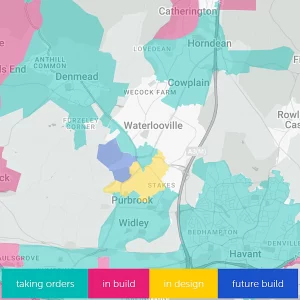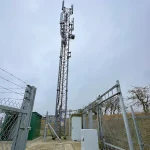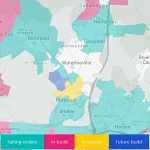Sponsored Links
ISP TalkTalk Accuses BT of Using Superfast Broadband to Bolster its UK Monopoly
Posted: 12th Sep, 2011 By: MarkJ

 Broadband ISP TalkTalk ( AOL , Tiscali ) has accused BT of
Broadband ISP TalkTalk ( AOL , Tiscali ) has accused BT of However, while LLU allowed ISPs to offer ADSL (up to 8Mbps) and ADSL2+ (up to 24Mbps) based broadband services at lower prices, FTTC is a different kettle of fish. So far the best ISPs can hope for is a more restrictive alternative called Virtual Unbundled Local Access (VULA) that doesn't give them the same level of price flexibility or service control.
The only other alternative is Physical Infrastructure Access (PIA), which effectively requires an ISP to build its own infrastructure and many believe that BT will set the final prices far too high (here) and thus Ofcom might have to intervene (here). This could take over a year to resolve and meanwhile the government's Broadband Delivery UK (BDUK) office has already begun distributing its £530m budget (here).
TalkTalk's Commercial Director, David Goldie, said (The Guardian):
"I feel it should already have been sorted. We are playing in extra time already. Publicly subsidised projects are already being awarded.
At all times BT is thinking about how it can recover the monopoly position that it lost many years ago. I don't think that is going to represent good value for the British taxpayer."
"I feel it should already have been sorted. We are playing in extra time already. Publicly subsidised projects are already being awarded.
At all times BT is thinking about how it can recover the monopoly position that it lost many years ago. I don't think that is going to represent good value for the British taxpayer."
The situation means that most BT based ISPs are forced to use the operators own BT Wholesale solutions for FTTC, which are a bit on the pricey side. Meanwhile big rivals cannot compete for public funding while the situation surrounding PIA pricing remains unresolved. As a result Goldie believes that the BDUK bidding process indirectly "favours one party" (BT).
Regular readers will recall that the previous government and Ofcom both allowed this as a trade-off for encouraging BT to expand its superfast broadband ambitions. Indeed BT is currently investing £2.5bn to bring its FTTC services within reach of 10 Million homes by 2012 (40% of the UK), rising to 66% by 2015; some 2.5 Million premises will also get access to 100Mbps+ FTTP technology. BT claims that it could reach 90% of the country by 2017 (the government's target for 2015) if all of the public funds went its way.
Competition is of course what gives the current broadband market its variety and low prices, if that is eroded then we could all end up paying more for superfast access. The good news is that Ofcom will eventually have to act; the bad news is that it might take awhile.
Search ISP News
Search ISP Listings
Search ISP Reviews
Latest UK ISP News








Cheap BIG ISPs for 100Mbps+
150,000+ Customers | View More ISPs
Cheapest ISPs for 100Mbps+
Modest Availability | View More ISPs
Latest UK ISP News
Helpful ISP Guides and Tips
Sponsored Links
The Top 15 Category Tags
- FTTP (6798)
- BT (3881)
- Politics (3074)
- Business (2766)
- Openreach (2663)
- Building Digital UK (2512)
- Mobile Broadband (2475)
- FTTC (2142)
- Statistics (2127)
- 4G (2092)
- Virgin Media (2024)
- Ofcom Regulation (1779)
- 5G (1732)
- Fibre Optic (1604)
- Wireless Internet (1595)
Sponsored
Copyright © 1999 to Present - ISPreview.co.uk - All Rights Reserved - Terms , Privacy and Cookie Policy , Links , Website Rules































